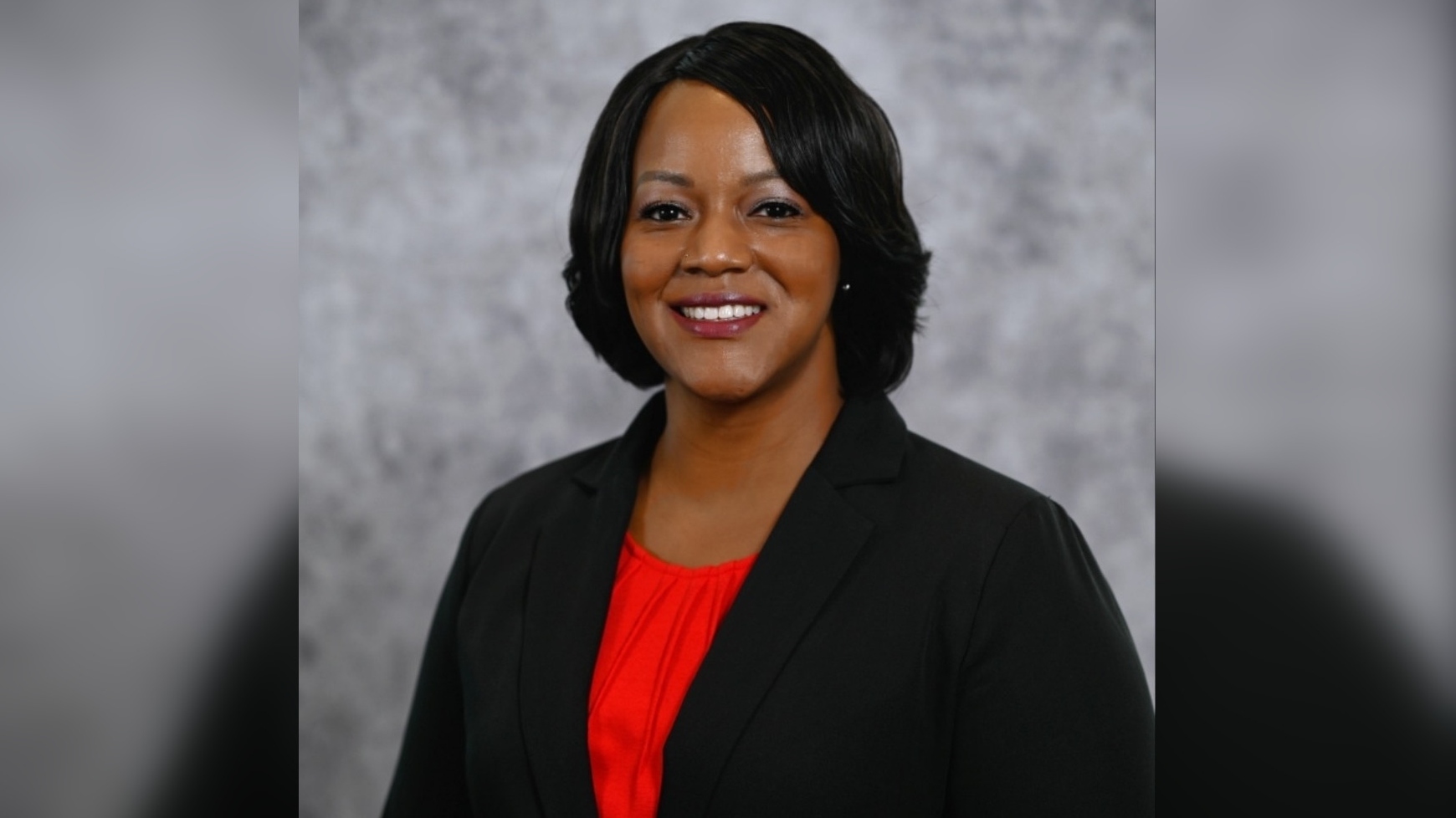Online MAC Program Creates New Possibilities for Physical Therapist
Ebony Therrier discovered the online MAC program just as she was considering a career transition from physical therapy to accounting. After graduation, she aspires to use her newfound knowledge to help small businesses thrive.

By Ashley Rabinovitch
A self-described “Army brat,” Ebony Therrier grew accustomed to change and transition from a young age. As a child, her family moved every two to three years until they finally settled in Georgia when she was in high school.
But her recent transition from physical therapy to accounting is one she never saw coming. Now, as she progresses through the online Master of Accounting (MAC) program at NC State’s Poole College of Management, she looks back and marvels at the twists and turns that led her here.
Changing Gears
Growing up, Therrier spent much of her time with older relatives. When her aunt received a knee replacement, a physical therapist visited their home to guide her through the rehabilitation process. Watching that physical therapist work planted a seed in curiosity in Therrier that sprouted into a fruitful career of her own.
For nearly 15 years, she worked as an independent physical therapist in a variety of settings. She ventured into travel therapy, worked as a rehab director in a nursing home, and served patients directly in their homes. But even though she has always savored the experience of solving tangible problems for other people, she has grown increasingly frustrated with new restrictions surrounding the profession over the past two years.
“People were overusing and abusing healthcare, so insurance companies needed to make a change,” she explains. “But the restrictions they put up in response to that overuse has made it more difficult to treat patients.” During the pandemic, she also felt vulnerable to the constant, unavoidable risk of exposure. “I eventually realized that while I enjoyed working with people, it was time to do something else,” she says.
Trial by Fire
Around the same time, her husband completed his service in the Army and established a Charlotte-based trucking company called Tederson. It was 2020, and truckers were being paid triple their normal rates because of record-high demand for their services. Spotting an opportunity to leverage his natural aptitude for logistics, he purchased a truck and became the company’s first driver.
Eager to support the new family venture, Therrier took on an administrative role. She had some experience with bookkeeping as a contract travel therapist, but she moved outside of her comfort zone when she dove into billing, invoicing, and safety and compliance. “It was trial by fire,” she remembers. “I spent a lot of time reading online forums and taking online trucking classes.”
While she quickly mastered the basics, she was acutely aware of how much she didn’t know. She began searching for a local accountant who understood the trucking industry and charged affordable rates, but no one fit the bill. However, her perspective changed when she visited the DMV to complete end-of-year paperwork. “I asked a customer service representative to recommend a local accountant, and she said that based on the knowledge demonstrated in our conversation and the way I had organized all the paperwork, I could do the company’s accounting myself,” remembers Therrier. “That was a lightbulb moment.”
The more she thought about it, the more she realized the truth in what the DMV representative had said. Therrier had always been gifted at math, naturally detail-oriented, and comfortable working with people from all walks of life. And with her satisfaction in her physical therapy career declining, it could be an ideal time to change gears.
She explored several accounting programs in North Carolina, but most were too expensive or inflexible. But with NC State’s MAC program, she found an online, asynchronous program with a reasonable price tag. After completing a brief prerequisite program in the spring of 2022, she began taking MAC courses in August.
Getting Up to Speed
Transitioning from healthcare to accounting has required a significant shift in mindset, Therrier reflects. “In physical therapy, we are always looking for the most efficient way to accomplish something, but there are so many rules and regulations to consider with accounting,” she says. “It’s an entirely different thought process. I’m just soaking everything in right now.”
Therrier has been relieved to discover that her MAC classmates come from a wide variety of backgrounds. “One of the highlights of the program is seeing how people bring their previous experiences to the table,” she says. Everyone, she has observed, brings something of value. In her own experience, for example, the research skills she mastered as a physical therapist have served her well in the world of accounting.
Her MAC courses have been so applicable to her role at Tederson that she often keeps a QuickBooks tab open to reference the company’s financial data during lectures. Almost immediately, she began spotting things to improve. In one introductory course, she realized that she had categorized a large truck repair as an expense when it should have been a capitalization. In another course, she took a deep dive into the different types of depreciation and learned how to write off equipment her company recently purchased. She also changed Tederson’s legal structure from an LLC to an S Corp and gained the confidence she needed to prepare the company’s annual taxes.
In light of the growing market need for trucking companies, the company is expanding quickly. Therrier and her husband recently purchased a second truck and plan to buy two more next year.
What Lies Ahead
Like many MAC students, Therrier faces a daunting workload. In addition to full-time study and part-time work at Tederson she works full-time as an appeal and deny coordinator for an insurance company.
Throughout the long days, she remains motivated by the prospect of becoming the kind of accountant she and her husband struggled to find when building their own business. After graduating, she plans to learn the ropes in a local firm before setting up her own accounting practice. “I saw how difficult it was for small businesses to find a reliable, affordable accountant, so I plan to work with them to get organized and make strategic decisions,” says Therrier. “Thanks to the MAC program, I will have the right tools to help.”
- Categories:


